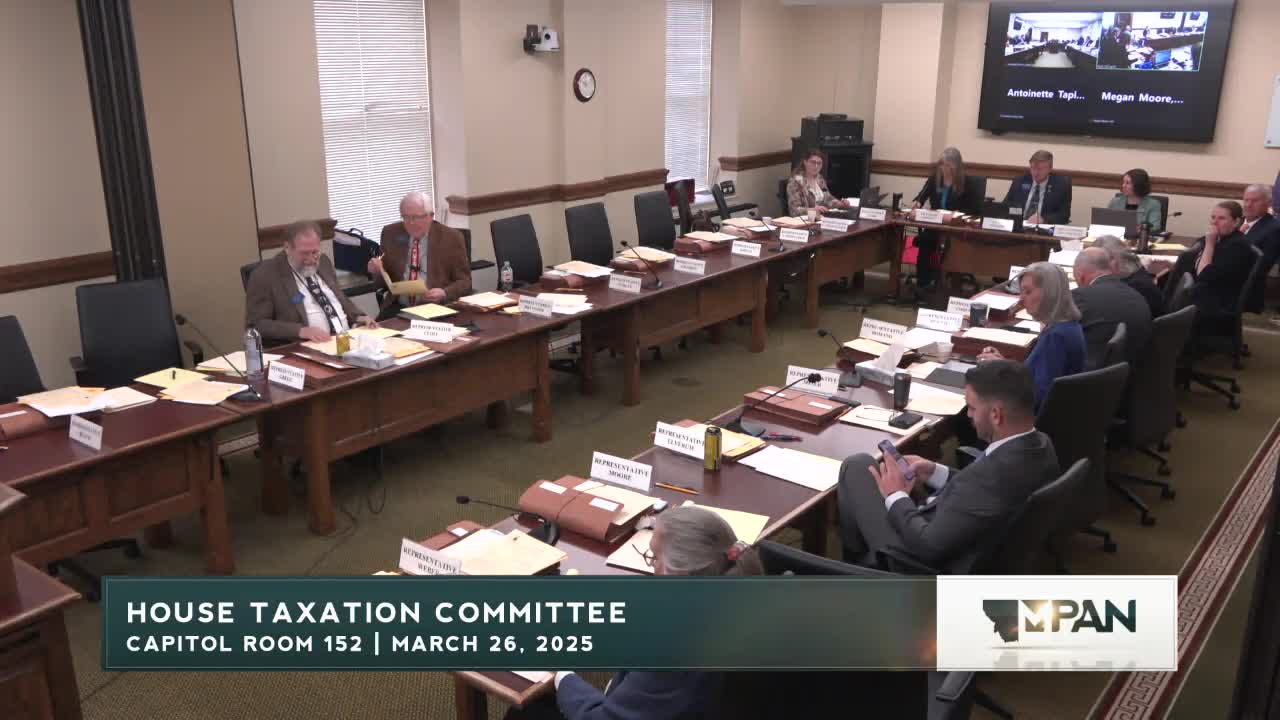Panel hears bill to raise cigarette tax by $1 per pack; supporters cite health benefits, retailers warn of smuggling and lost sales
Get AI-powered insights, summaries, and transcripts
Subscribe
Summary
Rep. Melody Cunningham asked the House Taxation Committee to approve a $1 per‑pack increase in Montana’s cigarette tax, citing health benefits and the tax’s long absence of adjustment.
Representative Melody Cunningham opened the hearing on House Bill 826, proposing a $1 per-pack increase in the state cigarette tax — the first such increase in 21 years, she said. Cunningham cited public‑health and fiscal figures for support, including an estimate that smoking costs Montanans about $511 million per year in health-care-related costs and that Medicaid spends about $87.2 million annually on smoking-related care.
A wide range of health and youth advocates testified in favor. Students from Powell County testified that higher prices deter youth initiation; Jackie Semmens of the American Heart Association said tobacco taxes reduce use, help fund cessation services and lower health-care costs; Lauren Wilson, a pediatrician and past president of the Montana chapter of the American Academy of Pediatrics, cited research tying price increases to decreased smoking and lower rates among pregnant women. Amanda Cahill, with Montana Kids vs. Big Tobacco, noted the current allocation of cigarette-tax receipts: she said roughly 44 percent goes to health initiatives, 8.3 percent to veterans’ nursing homes and 2.6 percent to long-range planning.
The American Lung Association, the Montana Medical Association and the Alliance for Healthy Montana supported the increase, arguing the state tax has not kept pace with inflation and that a modest per-pack increase would strengthen prevention and cessation work.
Opponents — led by the Montana Retail Association, convenience-store operators and petroleum‑marketer groups — argued a dollar increase would make Montana’s tax rate well above neighboring states, encourage cross‑border purchases and smuggling, and hurt small, locally owned retailers. Brad Griffin of the Montana Retail Association and multiple store owners warned of lost secondary sales (fuel, snacks, drinks) and increased theft; convenience-store operators said cigarette revenue supports many small employers and employee hours.
Retail and petroleum-industry witnesses pointed to surrounding-state tax differentials (Idaho, Wyoming, North Dakota) and noted Montana’s existing tax share on cigarettes already generates sizeable revenue. Several opponents also cited studies of smuggling and cross-border avoidance and argued the fiscal note was uncertain given potential declines in in‑state sales.
Department of Public Health and Human Services staff (informational witness Nicole Aune) and the Department of Revenue’s cigarette-tax administrator (Cindy Bacheberg) were available for technical questions on prevalence data, the quit line and how tax and stamp systems operate. Cunningham closed by saying she framed the bill on public‑health grounds and asked for committee consideration.
Why it matters: The proposed increase would change a long‑standing tax rate and has direct budget and public‑health implications; supporters emphasized reduced smoking and lower health costs, opponents warned of economic harm to retailers and cross‑border tax avoidance.
